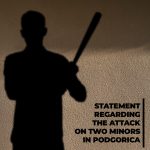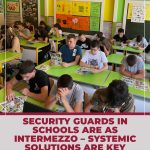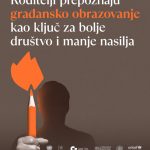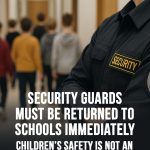
THE MINISTER OF DEFENSE MUST ENSURE EQUAL ACCESS TO ALL MEDIA
16/09/2025
LOCAL AUTHORITIES IN THE SERVICE OF HATRED
19/09/2025WHEN WILL PEER VIOLENCE IN MONTENEGRO END?

Another child in Montenegro has been brutally abused by peers, sustaining serious bodily injuries — this time, the attack happened in Zeta because the victim was seen as an outsider, a boy from Podgorica. Two years ago in Bar, children were attacked for being from Sarajevo… Peer violence driven by xenophobia and discrimination is merely a reflection of adult behavior — adults who support divisions in society and show sympathy only to “their own”.
Peer violence in our country is no longer an isolated incident, but a deeply rooted and systemic problem. Weaknesses in both the education system and parenting, lack of institutional accountability, and a broader societal indifference are taking an increasing toll. We must ask ourselves — how much longer?! How many more need to be injured or killed before the state begins to take real action?
According to publicly available data, in the 2024/2025 school year alone, at least 115 cases of peer violence have been reported — a clear indication of the urgent need for serious and lasting measures. Among these should be the reinstatement of school security officers, whose physical presence would have both a preventive and protective effect. Due to a lack of political will, many schools have been left without any security, stripping children of a vital line of safety.
The return of security officers must be part of a broader strategy to protect children — not just an administrative checkbox.
The case from Zeta exposed all the weaknesses of the system. The child suffered severe physical and psychological consequences, while institutions once again failed to respond quickly and in a coordinated manner. Even the bus driver did not react, despite witnessing the attack — he ignored the opportunity to help or call the police. The school principal initially denied responsibility, claiming the violence did not happen on school grounds, only to later issue a public apology. Instead of concrete action, blame was shifted from one party to another — until the case reached the public eye. When institutions act only under pressure, it’s clear that the system is broken.
We requested information from the Basic Court in Bar regarding the legal outcomes in two particularly severe cases of violence against children — the physical attack on children from Sarajevo in April 2023 and the shooting of Daris Mujić in October 2024. According to unofficial information, the trial in the second case is still ongoing, but the process is being prolonged, and no first-instance verdict has been issued to date. This kind of institutional inertia not only further erodes public trust in the judiciary but sends the message that violence against children is something the system tolerates.
This practice must end. Educational institutions and state bodies — the Ministry of Education, social work centers, the police — must take immediate and decisive responsibility for every reported case. No victim should be neglected, and no perpetrator spared.
Prevention must become the foundation of the fight against violence, through mandatory civic education focused on empathy, non-violent communication, and peaceful conflict resolution. Children with aggressive behavioral issues must be treated as children in need of help and given appropriate support in their interactions with others. Both children and parents must have access to free psychological and legal assistance.
Sanctions for perpetrators must be clear, lawful, and fairly enforced. Responsibility cannot fall solely on the child committing the violence, but also on their parents or guardians. The community — parents, neighbors, citizens — must no longer remain silent. Ignoring is not neutrality — it is complicity.
We call on the Ministry of Education, Science and Innovation to provide not only regulations but also additional psychologists, pedagogues and trained staff, and to enable early intervention in collaboration with social work centers. Local governments should support schools with additional resources and counseling spaces.
This is not just a matter of school policy — it’s about the future of our children. Peer violence leaves wounds that do not heal easily. If victims are left alone and perpetrators face no consequences, we are allowing fear and trauma to become the norm.
The time to wake up and act is now.
Martina Markolović, social worker at Human Rights Action







 English
English Montenegrin
Montenegrin